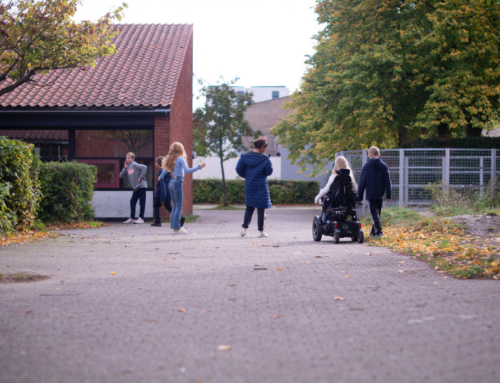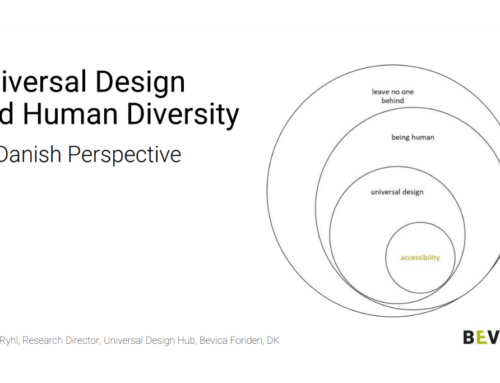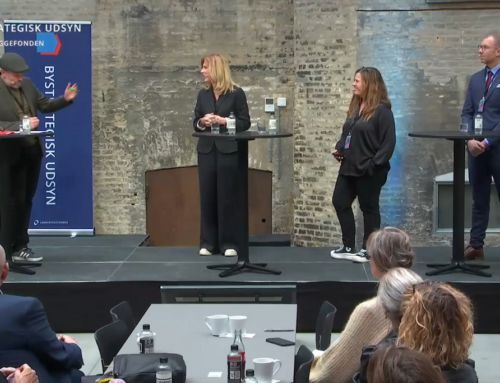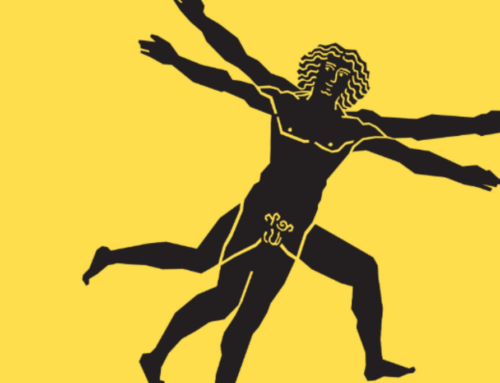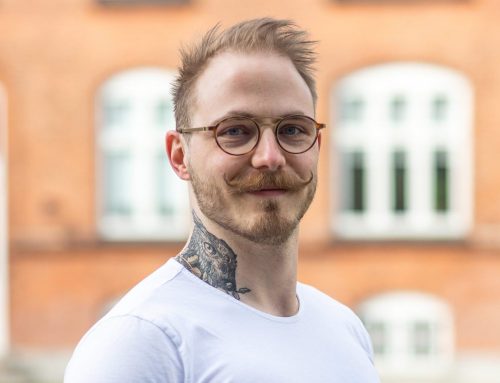
No one should feel guilty about having a disability
Children may experience a feeling of guilt when faced with doubt and distrust from caseworkers and educators, which is unjust according to Emil Falster, who has dedicated his PhD project to investigating the barriers children with disabilities face in their journeys through public sector systems.
by Nanna Stærmose
What is the reality for disabled children in today’s Denmark?
This is a question Emil Falster is seeking to answer in his PhD project. Based on developments within the field of disability over the past 10 years, the project sheds light on some of the barriers encountered by disabled children and their parents in interaction with the public sector, but also in the public space.
“The field of disability has been severely downgraded politically over the past decade. This is reflected in the way we as a system and society treat people with impairment,” Falster says, a PhD student at Roskilde University.
It is clear this subject is close to his heart, but he stops himself after venturing too far off on a theoretical tangent and instead brings up an example from his empirical data collection, which included tagging along with a group of children going to the museum. Several of them were wheelchair users and therefore unable to enter the museum without the use of a ramp. First, the staff had to find the ramp, and once it was properly set up, it turned out to be so narrow that the children could barely drive their wheelchairs up it.
“When the first child made the attempt, the ramp collapsed loudly, making passers-by turn their heads at the child, who was deeply blushing and staring down at the ground. This is just a classic example of how a child is put on display simply because he was unable to get up to the entrance on his own due to an inadequate level of accessibility,” Falster says.
Falster’s dissertation examines barriers children and young people up to the age of 19 encounter in their lives. These can be material/physical barriers, as the ramp story illustrates, but also social/relational barriers, where children find themselves restricted because they are treated in a certain way. For example, some children find that educators and caseworkers fail to take them seriously or don’t involve them in the casework at all.
One of the more extreme incidents Falster has come across was a 13-year-old boy who was unable to get around without a wheelchair. Once his mother could see that he was starting to grow out of it, she contacted the municipality, which replied that she should contact them again once the wheelchair had become too small.
“When I visited them, the boy was lying in his bed and being carried around the home. He hadn’t been to school for a period. Not only were they only able to order a new chair once the old one had become too small; it also took a long time to arrive.”
It’s cases like those that drive Falster and his PhD dissertation – to shed light on an area where he believes a group of people are subjected to unheard of injustices despite not being in any way responsible for their circumstances.
It is not always that the injustice or barriers are as obvious as in the aforementioned examples. Sometimes dilemmas arise in relation to how the authorities intervene in the child’s life and perhaps inadvertently end up making them feel a sense of guilt or shame.
An example could be a child in a wheelchair who ends up sitting in a position that’s not good for their body while playing with other children. In such cases, an adult might feel a natural desire to intervene and correct the child’s position, but the question is whether that is always the appropriate course of action.
“If you intervene, you interrupt the game and possibly give the child a feeling of being wrong or different. On the other hand, you don’t want the child to get physically harmed. There’s no definitive solution. However, it can be helpful for adults to have a focus on those sorts of dilemmas and perhaps just allow the child to play a little longer before intervening. Otherwise, it can amount to many interruptions over the course of a day,” Falster says.
When it comes to the area of disability in general, however, Falster has plenty of solutions in mind. For him, money goes hand-in-hand with ensuring justice and dignity for disabled people.
He believes that the budget cuts in the area are accompanied by a moral discourse that portrays disabled people as a group of people who cannibalise other welfare areas. Instead, Falster argues that society needs to cultivate a different and more inclusive view of disabled people, not only in relation to the group of people who are born with their impairments, but also those of us who will experience limitations in one way or another at some point in our lives.
“One day, we may find ourselves sitting in a wheelchair and having to use a ramp to enter a museum. That shouldn’t be something that makes us feel guilty or like we’re an economic burden,” Falster says.
Emil Søbjerg Falster
MSc in Public Administration
PhD student at Roskilde University’s Research Centre for Life with a Mobility Disability
28 years old
Scheduled to submit his PhD dissertation in spring 2021
Read more research profiles
